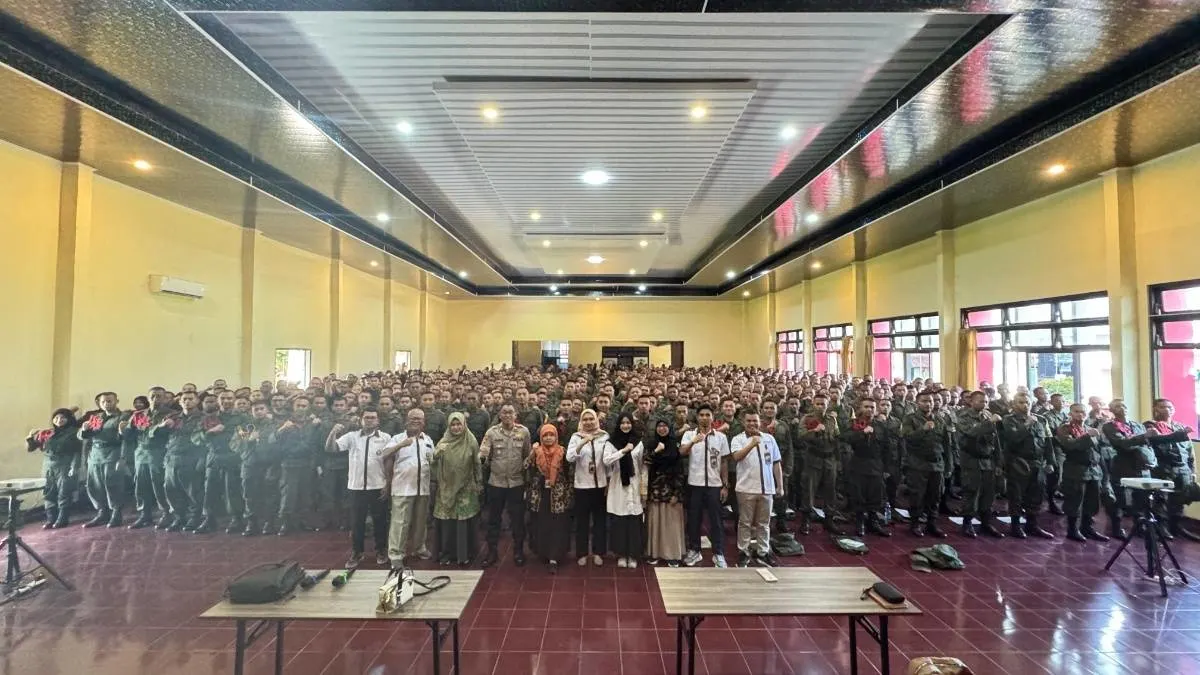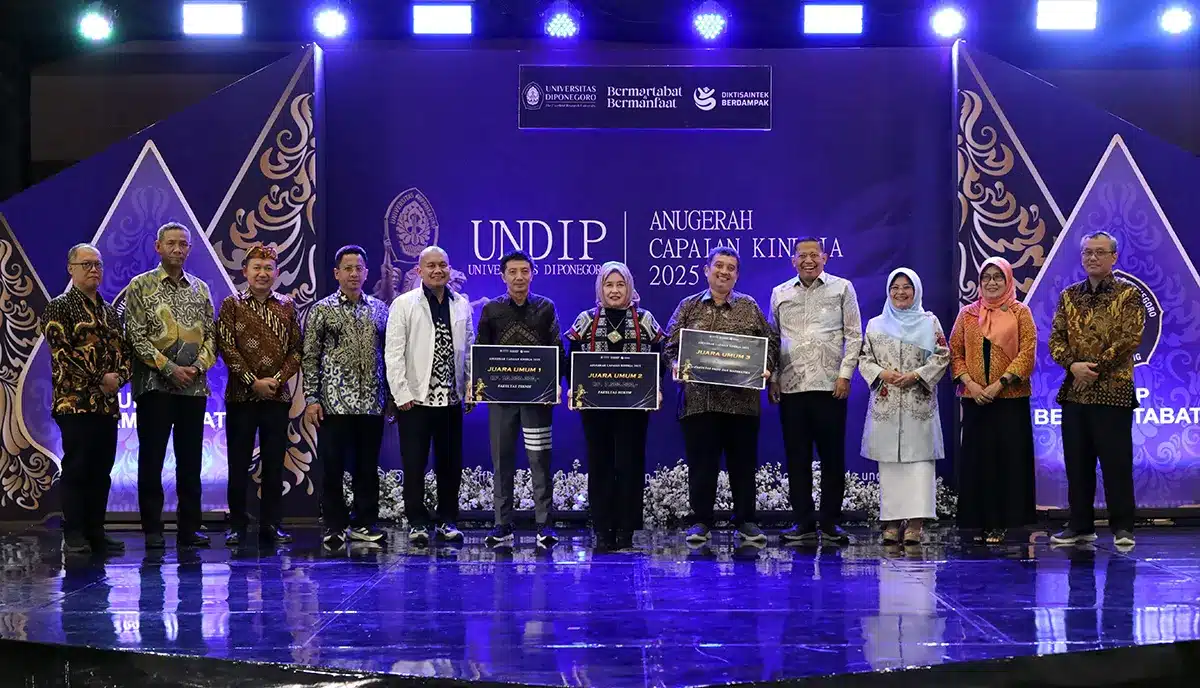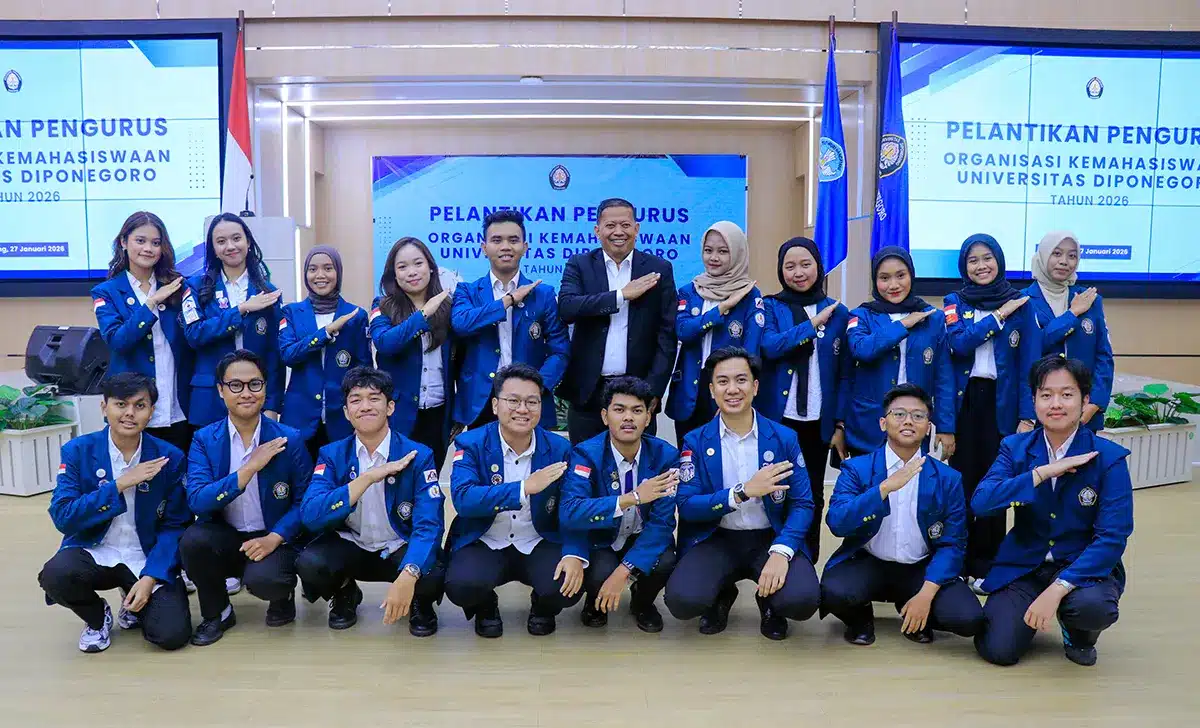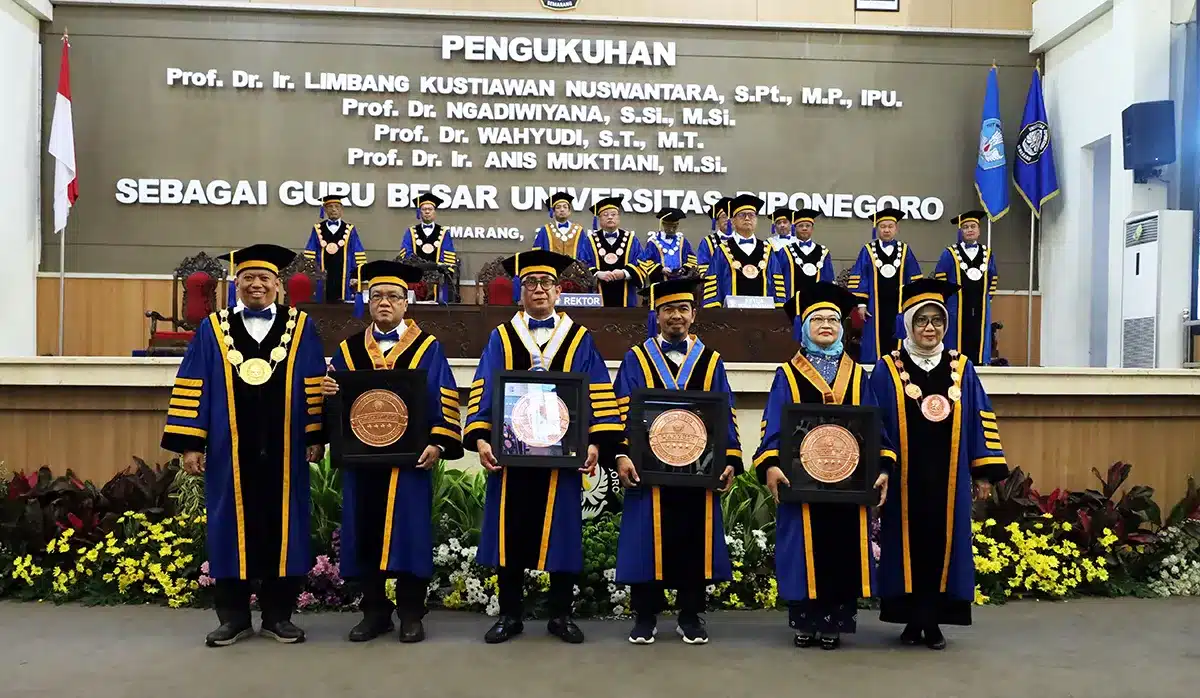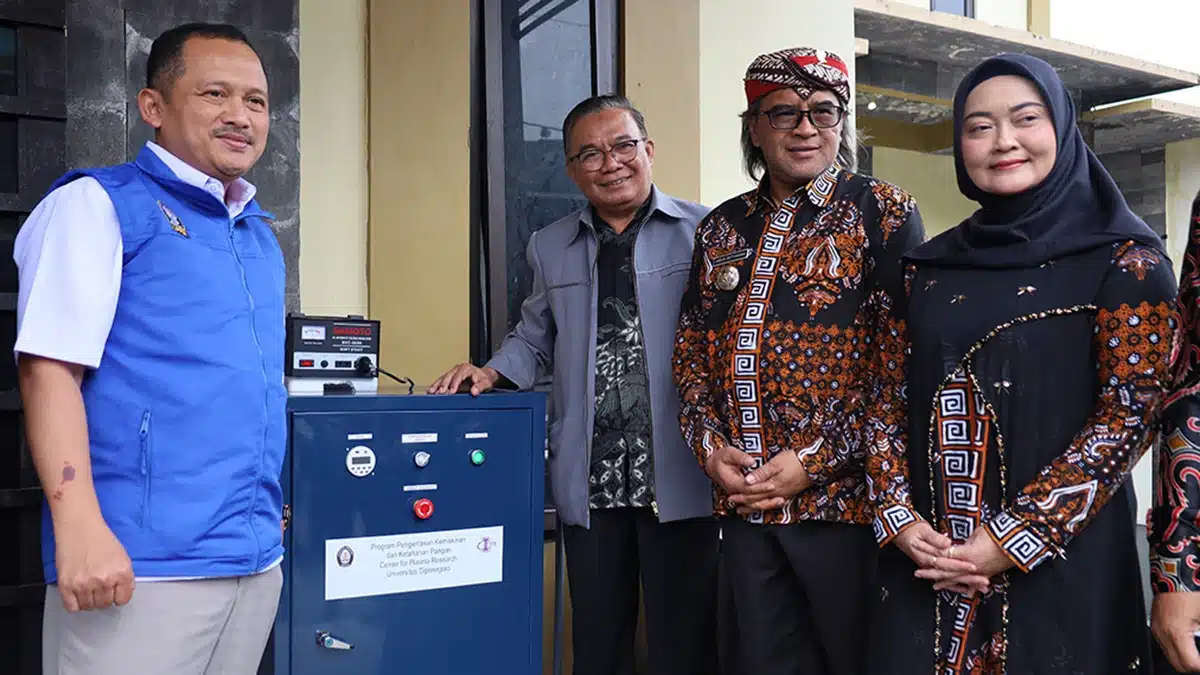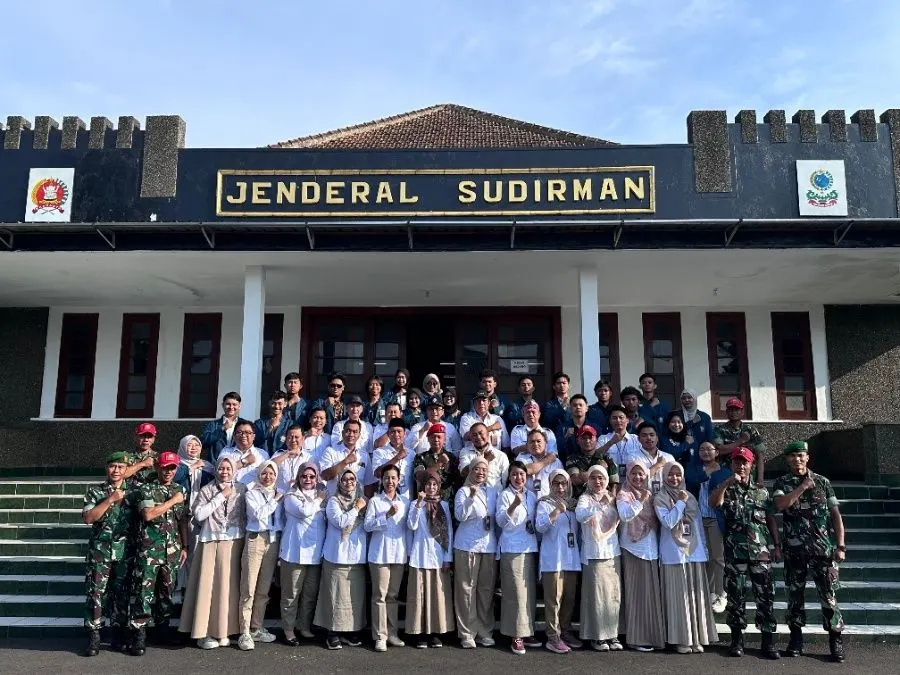UNDIP, Semarang – A total of 3,591 students from the Sarjana Penggerak Pembangunan Indonesia (SPPI) program across military education units in Jawa Tengah and the Yogyakarta Special Region have completed the SPPI Batch 3 Managerial Training. This training, conducted across four clusters—Agriculture, Livestock, Fisheries, and Nutrition—was led by Universitas Diponegoro (UNDIP), with four senior lecturers serving as cluster coordinators: Fajrin Pramana Putra, S.P., M.Sc.; Dr. Ir. Marry Christiyanto, M.P., IPM.; Alfabetian Harjuno Condro Haditomo, S.Pi., M.Si., Ph.D.; and Dr. Sri Mulyani, S.Pt., M.P.
Held simultaneously from July 1–4, 2025, this intensive training aimed to equip students with a deep understanding of the managerial competencies needed in the four clusters. These SPPI students will later serve as Public Kitchen Managers (SPPG) for the government’s Free Nutritious Meals (Makan Bergizi Gratis / MBG) Program, a key step in preparing for Indonesia’s Golden Generation in 2045.
The training took place across six different military education sites (Satdik), involving thousands of future agents of change in the food sector. The locations and number of participants were as follows:
- Pusdik Penerbad Semarang: 413 SPPI students
- Rindam IV Diponegoro, Magelang: 822 SPPI students
- Lanud Adi Soemarmo, Solo: 797 SPPI students
- Pusdiktop, Solo: 189 SPPI students
- AAU Yogyakarta: 410 SPPI students
- SPN Polda Jawa Tengah Purwokerto: 960 SPPI students
UNDIP contributed 99 lecturers—78 from the Faculty of Animal and Agricultural Sciences and 21 from the Faculty of Fisheries and Marine Science. The lecturers were distributed proportionally across the six sites:
- Penerbad Semarang: 9 lecturers
- Rindam IV Magelang: 26 lecturers
- Lanud Adi Soemarmo, Solo: 16 lecturers
- Pusdiktop Solo: 6 lecturers
- AAU Yogyakarta: 9 lecturers
- SPN Polda Jawa Tengah Purwokerto: 33 lecturers
The training content covered agriculture, food, fisheries, and livestock sectors, with a focus on value chain management and resource optimization.
In a separate statement, Letnan Jenderal TNI (Purn) Dr. Anton Nugroho, M.M.D.S., M.A., Rector of UNHAN, praised the UNDIP-led training initiative.
“This program is essential in shaping high-quality human resources with integrated managerial capacities in the food sector. It aligns with the national vision for food resilience and supports the continuity of the MBG program,” he said.
Fajrin Pramana Putra, S.P., M.Sc., one of the key coordinators from UNDIP, explained that the training aims to provide comprehensive knowledge that enables students to conduct strategic analysis and planning, manage risks and make effective decisions in the field. The training followed a zero-waste integrated smart farming concept named SMART FARMING. Among the topics taught were maggot cultivation to process organic waste from the SPPG kitchens. These maggots are used as feed for livestock and fish, including in bucket aquaculture (Budidamber) systems. Students also learned how to process livestock and fish products—such as milk pasteurization, fish nuggets, and chicken galantine—as well as how to produce rice husk charcoal for use as a growing medium in vertical vegetable gardens (Tower Garden systems).
“We’re equipping these students with the strategic thinking needed to manage risks and make informed decisions as future SPPG managers,” Fajrin said.
“They are the key to increasing efficiency and productivity across the food sector,” he added.
Several participants expressed their enthusiasm.
“The material presented by UNDIP was highly relevant to field needs, especially in managing resources from upstream to downstream to produce quality food products,” said an SPPI student from Pusdik LANUD ADI SOEMARMO.
Another participant from SPN Polda Jawa Tengah emphasized the importance of understanding the supply chain to reduce losses and waste.
The training is expected to strengthen participants’ managerial capabilities and value chain understanding, enabling them to perform analysis, manage risks, and make strategic decisions in the field. It also aims to enhance efficiency, productivity, and innovation in the food sector—significantly reducing post-harvest losses and increasing product value. In doing so, the MBG program will benefit from a more competent and prepared workforce.
